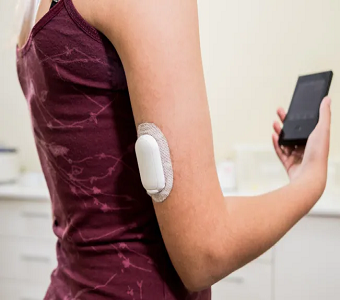Last month, AbbVie (ABBV) reported that its new Hepatitis-C treatment was effective in 96% of patients who had never been treated for the virus. On Tuesday, the company released data showing a similar response in patients who have failed previous treatment for Hepatitis-C with standard care.
PropThink has been positive on ABBV’s hepatitis partner, Enanta Pharmaceuticals (ENTA), since this summer based on our belief in the company’s Hep-C pipeline – namely, ABT-450. ENTA is up 30% since we first opined on the stock (catch up here), and is ip 13% in the Tuesday trading session.
AbbVie released phase III results for an investigational three direct-acting-antiviral (3D) regimen plus ribavirin in patients with chronic, genotype 1 (GT1) hepatitis C virus (HCV) infection. The results closely match results in SAPPHIRE I for treatment-naïve patients, which were released on November 19, 2013.
There are six genotypes of Hep-C, with GT1 being most prevalent. In the National Health and Nutrition Examination Survey (NHANESIII) study done by the Centers for Disease Control (CDC), nearly 74% of infections in the U.S. were classified at GT1.
AbbVie’s HCV program is the largest all-oral, interferon-free clinical program in GT1 patients being conducted to date. SAPPHIRE-II is the second of six phase 3 trials supporting AbbVie’s investigational 3D regimen for the treatment of GT1 hepatitis C patients. This trial focuses on patients who have failed standard pegylated interferon and ribavirin treatment.
SAPPHIRE-II is a global, multi-center, randomized, double-blind, placebo-controlled study to evaluate the efficacy and safety of 12 weeks of treatment with ABT-333 (250mg), ribavirin (weight-based), both dosed twice daily, and the fixed-dose combination of ABT-450/ritonavir (150/100mg) co-formulated with ABT-267 (25mg) and dosed once daily in non-cirrhotic, GT1a and GT1b HCV-infected, treatment-experienced adult patients who previously failed treatment with pegylated interferon and ribavirin.
Patients in the study receiving 12 weeks of AbbVie’s 3D regimen achieved a sustained virologic response at 12 weeks post-treatment (SVR12) of 96 percent. Virologic relapse or breakthrough was low, occurring in 2% percent of patients receiving the 3D regimen. Relapse or breakthrough is a concern for many viral diseases and means that patients become resistant to a particular treatment. Discontinuation rates due to adverse events were low, and of an equal percentage (1%) in both active and placebo groups.
Results from the remaining four studies in AbbVie’s phase III program will be available in the coming months, supporting regulatory submissions starting in the second quarter of 2014.
In connection with ENTA, PropThink has taken a long position.




